1780 – Just before dawn, the town line of Tunbridge and Royalton, VT was the site of the last major raid of the Revolutionary War in New England. In the “Royalton Raid,” three hundred Indians led by British soldiers invaded from Canada.
The result was the destruction of dozens of homes, crops and livestock necessary to survive the coming winter. Although women and girls were not harmed, four settlers were killed, and 26 men and boys were taken captive and marched to Canada to be imprisoned. In the years that followed, many of the captives made their way back to their families, but some never returned.
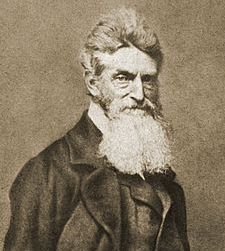
1859 – Abolitionist John Brown led a small group on a raid against a federal armory in Harpers Ferry, Virginia (now West Virginia), in an attempt to start an armed slave revolt and destroy the institution of slavery.
Word of the raid spread, and by morning Brown and his men were surrounded. A company of U.S. marines arrived on October 17, led by Colonel Robert E. Lee and Lieutenant J. E. B. Stuart. On the morning of October 18, the soldiers overran Brown and his followers. Ten of his men were killed, including two of his sons.
The wounded Brown was tried by the state of Virginia for treason and murder, and he was found guilty on November 2.The 59-year-old went to the gallows on December 2, 1859. Before his execution, he handed his guard a slip of paper that read, “I, John Brown, am now quite certain that the crimes of this guilty land will never be purged away but with blood.”
It was a prophetic statement. Although the raid failed, it inflamed sectional tensions and raised the stakes for the 1860 presidential election. Brown’s raid helped make any further accommodation between North and South nearly impossible and thus became an important impetus of the Civil War.
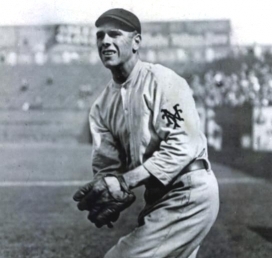
1912 – New York Giants outfielder Fred Snodgrass dropped an easy pop-up in the 10th inning of the deciding game of the World Series against the Red Sox. His error led to a two-run Boston rally and cost the Giants the championship.
The error – dubbed “the $30,000 muff” because that’s how much money the Giants stood to win from a Series championship – stuck with Snodgrass for the rest of his life. After he retired from baseball, he moved to California and became a banker and bought a ranch. The citizens of Oxnard elected him mayor. But still, when he died in 1974 – 62 years after that fateful World Series game – the New York Times headline blared: “Fred Snodgrass, 86, Dead; Ball Player Muffed 1912 Fly.”
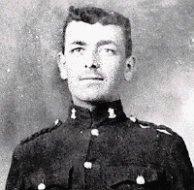
1916 – Private Henry Farr of the British Expeditionary Force was executed for cowardice after he refused to go forward into the front-line trenches on the Western Front during World War I.
His descendants fought a long battle to clear his name. Farr suffered from severe shell-shock, a condition that was just being recognized at the time, and had been damaged both physically and psychologically by his experience of combat, especially the repeated heavy bombardments to which he and his comrades at the front had been subjected.
In August 2006, the British High Court granted a pardon to Farr … not that it did him a lot of good.
1934 – Chinese Communists broke through Nationalist enemy lines and began an epic flight from their encircled headquarters in southwest China. Known as Ch’ang Cheng – the “Long March” – the retreat lasted 368 days and covered 6,000 miles, nearly twice the distance from New York to San Francisco.
The retreating force initially consisted of 86,000 troops, 15,000 personnel, and 35 women. Weapons and supplies were borne on men’s backs or in horse-drawn carts, and the line of marchers stretched for 50 miles. Only 4,000 troops completed the journey. They crossed 24 rivers and 18 mountain ranges, mostly snow-capped. The majority of those who did not perished. It was the longest continuous march in the history of warfare and marked the emergence of Mao Zedong as the undisputed leader of the Chinese Communists.
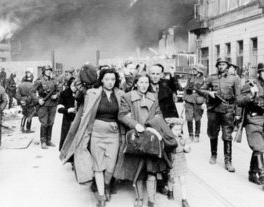
1940 – The Warsaw Ghetto, largest of the Jewish ghettos in occupied Poland during World War II, was established by the German Governor-General Hans Frank.
The ghetto was split into two areas, the “small ghetto”, generally inhabited by richer Jews and the “large ghetto”, where conditions were extremely difficult. The two ghettos were linked by a single footbridge. The Nazis then closed the Warsaw Ghetto from the outside world on November 16, 1940, building a wall with armed guards.
1946 – In Nuremberg, Germany, 10 high-ranking Nazi officials were executed by hanging for their crimes against humanity, crimes against peace, waging wars of aggression, and war crimes during World War II. Seven more received prison sentences. It was the final act of the first trial in history for crimes against the peace of the world.
Their crimes, the ultimate in 20th-century depravity, included the mass murders of some six million Jews and millions of other human beings deemed “undesirable” by Adolf Hitler. In his opening statement of the Nuremberg Trials, American prosecutor Robert H. Jackson had said, “The wrongs which we seek to condemn and punish have been so calculated, so malignant and so devastating, that civilization cannot tolerate their being ignored because it cannot survive their being repeated.”
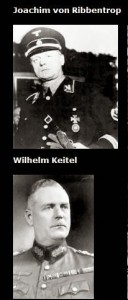
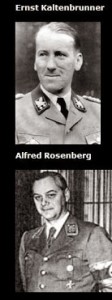
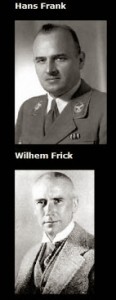
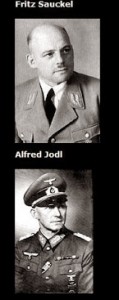
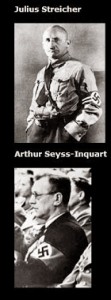
Executed
Joachim von Ribbentrop, Nazi minister of Foreign Affairs
Wilhelm Keitel, Chief of Defense for Germany
Ernst Kaltenbrunner, Director of Reich Main Security Office
Alfred Rosenberg, Reich Minister for the Occupied Eastern Territories
Hans Frank, Governor-General of Occupied Poland
Wilhelm Frick, Minister of the Interior
Fritz Sauckel, General Plenipotentiary for Labor Deployment
Alfred Jodl, Chief of the Operations Staff of the Armed Forces High Command
Julius Streicher, Gauleiter of Franconia
Arthur Seyss-Inquart, Reichskommissar for the Occupied Dutch Territories
Three black-painted wooden scaffolds stood inside a gymnasium, a room approximately 33 feet wide by 80 feet long with plaster walls in which cracks showed. The gymnasium had been used only three days before by the American security guards for a basketball game. Two gallows were used alternately. The third was a spare for use if needed. The men were hanged one at a time, but to get the executions over with quickly, the military police would bring in the man while the prisoner who preceded him still was dangling at the end of the rope.
The ten once “great men” in Hitler’s Reich that was to have lasted for a thousand years walked up thirteen wooden steps to a platform eight feet high which also was eight square feet. When the trap was sprung, the victim dropped from sight in the interior of the scaffolding. The bottom of it was boarded up with wood on three sides and shielded by a dark canvas curtain on the fourth.
Hermann Wilhelm Göring, the one-time Number Two man in the Nazi hierarchy, cheated the gallows of Allied justice by committing suicide in his prison cell two hours before he was scheduled to have been dropped through the trap door.
Imprisoned
Walther Funk, Reich Minister of Economics – Life
Rudolf Hess, Deputy Führer – Life
Erich Raeder, Grand Admiral – Life
Baldur von Schirach, Reich Governor of Vienna – 20 Years
Albert Speer, Minister of Armaments and War Production – 20 Years
Konstantin von Neurath, Reich Minister of Foreign Affairs – 15 Years
Karl Dönitz, Commander-in-Chief of the German Navy – 10 Years
Acquitted
Hjalmar Schacht, President of the Reichsbank
Franz von Papen, Chancellor of Germany
Hans Georg Fritzsche, Head of Radio Division of the Ministry
In his closing statement, prosecutor Jackson, in one of the most remarkable speeches in history, had said, “These defendants now ask this Tribunal to say that they are not guilty of planning, executing, or conspiring to commit this long list of crimes and wrongs. They stand before the record of this Trial as bloodstained Gloucester stood by the body of his slain king. He begged of the widow, as they beg of you ‘Say I slew them not.’ And the Queen replied, ‘Then say they were not slain. But dead they are…’ If you were to say of these men that they are not guilty, it would be as true to say that there has been no war, there are no slain, there has been no crime.”
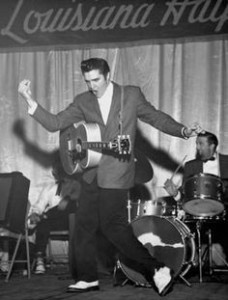
1964 – Elvis Presley, still stinging from his rejection at the Grand Old Opry in Nashville, joined the Shreveport, LA radio broadcast Louisiana Hayride, appearing weekly for the grand sum of eighteen dollars. The show, broadcast on local station KWKH-AM, represented Presley’s first major musical exposure and would prove invaluable to getting him noticed nationally.
1964 – The People’s Republic of China detonated a uranium-235 implosion fission device with a yield of 22 kilotons. With the test, China became the fifth nuclear power.
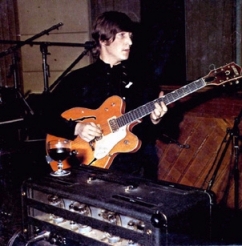
1965 – The Beatles recorded ‘Day Tripper’ with John Lennon handling the guitar solo.
1966 – Joan Baez and 123 other demonstrators who were protesting the military draft in the United States were arrested after they blocked the entrance of the Armed Forces Induction Center in Oakland, California.
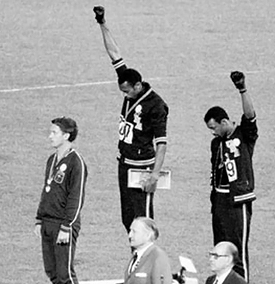
1968 – United States athletes Tommie Smith and John Carlos were kicked off the U.S. Olympic team after both raised a black-gloved salute during their medal ceremony and kept them raised until the American national anthem had finished.
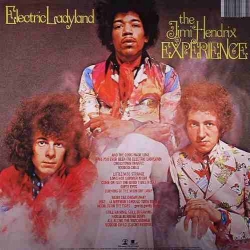
1968 – The Jimi Hendrix Experience released ‘Electric Ladyland’, their third and final studio album.

1972 – Two years after Tom Fogerty had quit Creedence Clearwater Revival due to leader (and younger brother) John Fogerty’s reluctance to give up creative control, and six months after the release and commercial flop of the dreadful ‘Mardi Gras’ album, internal strife between the three remaining band members finally caused the public breakup of the band.
1973 – Henry Kissinger and North Vietnamese diplomat Le Duc Tho were awarded the Nobel Peace Prize for negotiating the Paris peace accords. Kissinger accepted, but Tho declined the award until such time as “peace is truly established.”
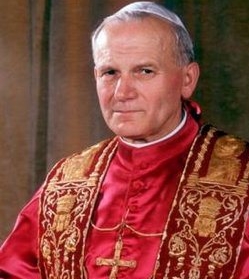
1978 – Karol Wojtyla was elected Pope John Paul II after the October Papal conclave. He was the first non-Italian pontiff since 1523.

1986 – Chuck Berry was the center of an all-star “60th birthday” bash in his hometown of St. Louis, a tribute concert – held two days before his actual 60th – where the legendary rocker was joined by Keith Richards, Eric Clapton, Etta James, Robert Cray, Linda Ronstadt, Julian Lennon,and many others on stage at the local Fox Theatre.
The making of the concert and the show itself were filmed by veteran director Taylor Hackford for the critically acclaimed hits 1987 documentary Hail! Hail! Rock ‘N’ Roll.

1991 – George Jo Hennard drove his truck through the glass front of Luby’s Cafeteria in Kileen, Texas, and then opened fire on a lunch crowd of over 100 people, killing 23 and injuring 20 more. Hennard then turned the gun on himself and committed suicide. No clear motive for his actions was ever determined.
One outcome of the Luby’s massacre was that in 1995 the Texas legislature passed a law allowing residents with gun permits to carry concealed weapons. Suzanna Gratia Hupp, who was at Luby’s with her parents on the day of the massacre and watched as they were murdered, was instrumental in getting the law passed. Hupp had a handgun with her that day, but left it in her car to comply with the law that forbid people from carrying concealed firearms.
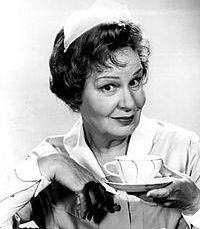
1992 – Actress Shirley Booth – won the Academy Award for Best Actress for her performance in Come Back, Little Sheba, was a 3-time Tony Award winning actress on Broadway, but perhaps best remembered for her role as Hazel Burke on television’s Hazel – died at the age of 94.

1992 – Sinead O’Connor was booed off stage at Madison Square Garden in a show that was intended to honor Bob Dylan on his 30th anniversary in the music business. O’Connor, who had torn up a photograph of Pope John Paul II on Saturday Night Live 13 days earlier (shown above), dropped her scheduled Dylan song and sang (shouted) ‘War’ by Bob Marley.
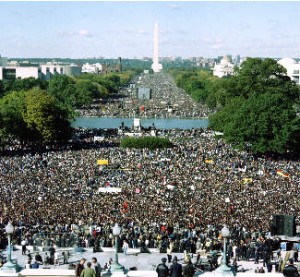
1995 – The Million Man March, a gathering en masse of African-American men, was held on and around the National Mass in Washington, DC.
One of the primary motivating factors for the march was to place black issues back on the nation’s political agenda. Organizers believed that politicians were failing the black community by “papering over the most vital dimensions of the crisis in international capitalism” and blaming urban blacks for “domestic economic woes that threatened to produce record deficits, massive unemployment, and uncontrolled inflation.”
In the spirit of unity and atonement, black leaders issued a call for all black people not in attendance at the March to recognize October 16, 1995 as a sacred day meant for self-reflection and spiritual reconciliation. All black Americans were encouraged to stay home from their work, school, athletic, entertainment activities and various other daily responsibilities on the “Day of Absence“.
1996 – A stampede of soccer fans before a World Cup qualifying match in Guatemala City killed 84 people and seriously injured more than 100.
Approximately 60,000 fans came to the stadium which has a capacity of only 45,000. Counterfeiters had sold thousands of fake tickets to the event.
Although the stadium was already full to capacity about an hour before the match was scheduled to begin, fans continued to push their way into the venue through a narrow passage. As those in front of them had nowhere to go, people began to be crushed and suffocated. Fist fights that broke out in the crowd exacerbated the situation, which ended in a panicked stampede.
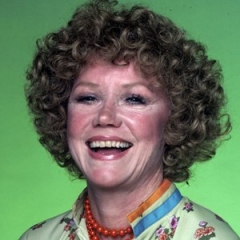
1997 – Actress Audra Lindley, most famous for her role as landlady Helen Roper on Three’s Company, died of leukemia at the age of 79.
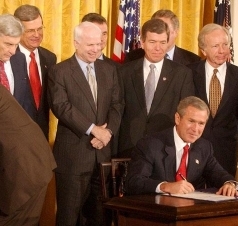
2002 – President George W. Bush signed Public Law 107-243, a congressional resolution authorizing war against Iraq.
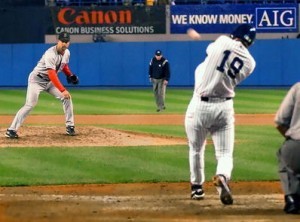
2003 – Aaron Boone hit a home run off Tim Wakefield in the 11th to give the New York Yankees a 6-5 win over Boston and advance to the World Series.
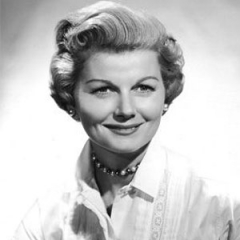
2010 – Actress Barbara Billingsley, best remembered for her role as June Cleaver on Leave It To Beaver, died of Polymyalgia rheumatica at the age of 94.
Compiled by Ray Lemire ©2015 RayLemire.com. All Rights Reserved.